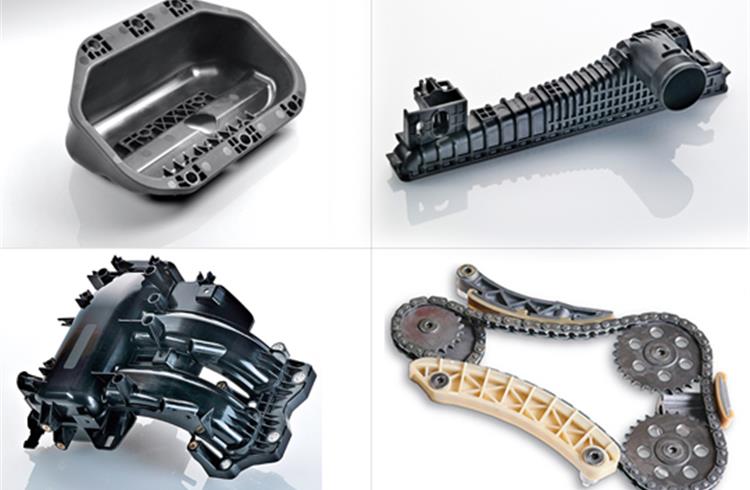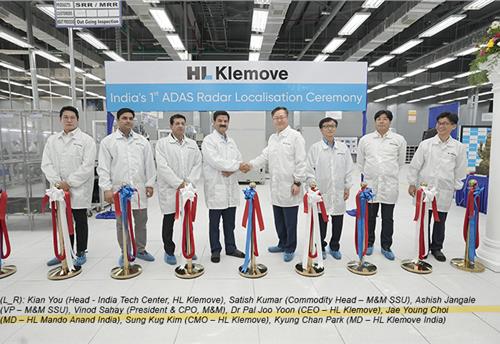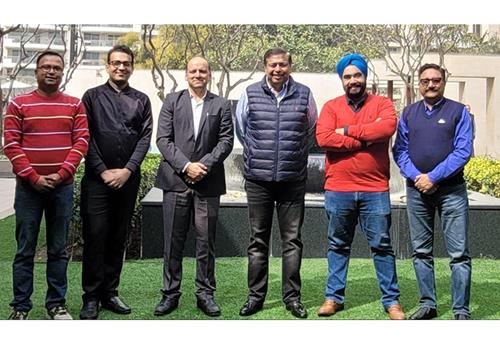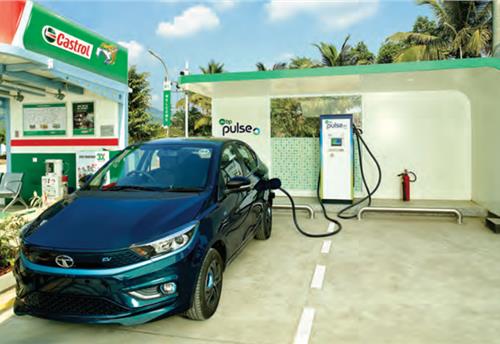2012 Lightweighting Special: DSM's plastic portfolio helps slash weight
The solutions it provides include brands like Akulon PA6, Arnite PBT, Stanyl PA46 which are actually polyamides and polyesters.
The solutions it provides include brands like Akulon PA6, Arnite PBT, Stanyl PA46 which are actually polyamides and polyesters. Speaking to Autocar Professional, Sanjay Jain, business director of the DSM Engineering Plastics division, says, “Akulon PA6 and Arnite PBT were the first engineering plastics to be introduced in India way back in 1982.” Although these plastics used to sell in India since the 1980s, DSM began production here only in 1999. At the time, the Indian auto sector was yet to adopt plastics in a big way but lately, the importance of fuel efficiency due to skyrocketing fuel prices has driven OEMs towards lightweighting measures more than ever before.
The Pune-based DSM has taken notice of the trend and last year the company restructured its Indian operations, aiming to treble its business in the next five years. Jain says, “The use of engineering plastics in India in the automotive sector is still below global standards. However, the penetration is growing rapidly as OEMs are moving towards a global platform approach. Secondly, the shift in consumer preference towards diesel and towards B-segment cars that come loaded with features is increasing the penetration of engineering plastics in India and reducing the gap between global standards dramatically.” Jain says the amount of engineering plastics in an average car made in India is between 2-3kg but 7-8kg on some models that are much more innovative on the plastics side. An excellent example of lightweighting is the Tata Nano which features engineering plastics from DSM in more than 20 under-the-hood parts and several transmission parts.
 |
The weight in kilograms reduced may not be much in itself but when compared with a similar metal part, the reduction is remarkable. According to Jain, “Air intake manifolds, cylinder head covers, timing chain covers, oil sumps, and airbag canisters in plastics typically weigh 1-2kg and the weight reduction versus metal is 30-50 percent. The target metal has been typically aluminium die-cast parts and steel.”
Under-the-hood parts need to be capable of enduring high temperatures of up to 230deg C for prolonged periods. These include parts like air intake manifolds, traditionally made of die-cast aluminium which can be replaced by Akulon PA6, leading to reduction of a few kilos in engine weight.
Other examples in more demanding areas have been the replacement of sintered metal and phosphor bronze gears in balancing and scissor mechanism, engine oil pumps and various gears used in electronic throttle control and electronic EGR valves. The weight reduction here has been to the extent of 60-70 percent, along with improvement in durability and cost.
Another instance is in the area of auto lighting, where based on the improved mechanical strength of PBTs (PolybutyleneTerephtalate), DSM is replacing PC parts with PBT at lower wall thicknesses which is a further weight reduction from existing plastic as well by 15-20 percent and also reduced overall system cost. Furthermore, in new-tech LED lighting used in headlamps, the active chip surface is so small, it can be difficult to keep it sufficiently cool to integrate with plastic components. Arnite PET XL, used for fans, supplies a constant cool air flow over a sustained period. This makes them the ideal alternative to traditional, heavier and more costly heat sink solutions.
Jain remarks, “The use of Stanyl PA46 in chain guides and tensioners in engine timing systems leads to upto 22 percent reduction in friction in the system, which in turn offers upto one percent less fuel consumption or 2 gm/km less CO2 emission. This has been validated by actual engine tests and many OEMs globally are endorsing this concept.”
The company now is working towards reducing weight of the plastics already in production. Jain cites, “In certain engine applications, we are moving from the standard polyamides to our AkulonUltraflow range of technology with higher reinforcement levels, which brings the same mechanical strength at lower wall thicknesses, thereby even reducing the weight of parts by a further 15-20 percent without compromising on the manufacturability of these applications.”
As regards the market for engineering plastics in India, Jain says: "Demand is expected to grow in double digits for the next three to five years. So, the opportunity is quite encouraging. However, the competitive intensity will increase in the coming years and companies which believe in development and provide sustainable value proposition to the entire chain would succeed and could even grow the market faster."
Commenting on the dominant trends in the automotive plastics market, he says: “As seen globally, improving safety, reducing emissions, improving fuel efficiency and NVH performance are the key dominant trends driving the auto industry in India. Engineering plastics are very well suited to answer these trends. For instance, use of Akulon PA6 in engine oil sump and air intake manifolds reduces weight as compared to the incumbent metal solutions, thereby reducing the dead weight in cars which directly improves fuel efficiency in cars.”
For OEMs, the complexity of automobiles and the importance of safety are driving up vehicle weight compared to earlier models. To offset this, they are now fast adopting innovative solutions in the form of high-tech and high-performance plastics. Companies like DSM Engineering Plastics provide these green pills for manufacturers to swallow, now quite willingly.
ANAND MOHAN
RELATED ARTICLES
Branded content: HL Klemove inaugurates first Local ADAS Radar Manufacturing Unit in India, marks a significant achievement in “Make in India” initiative
The inauguration ceremony was held in the presence of Vinod Sahay, President and CPO of Mahindra & Mahindra Ltd. and Dr....
BluWheelz to 'Green Up' logistics sector
With their EVs-as-a-service solution, the startup is playing it smart with costs and looking to electrify the entire seg...
BRANDED CONTENT: Spearheading the EV revolution in India
Jio-bp is a joint venture between Reliance Industries and BP PLC where both entities have married international expertis...





 By Autocar Pro News Desk
By Autocar Pro News Desk
 31 May 2012
31 May 2012
 3411 Views
3411 Views









